Astronomy Education Research On The Role Of Astronomy In Schools
Parallel Session
4th Shaw-IAU Workshop on Astronomy for Education
Session timeblocks
Tuesday Nov. 15, 2022
UTC: 8 p.m. -
9:30 p.m.
Wednesday Nov. 16, 2022
repeated:
UTC: noon -
1:30 p.m.
The session focused on the impact of Astronomy Education Research on science literacy and practices in schools. Specific skills and competencies in astronomy that may be transferred into other and sometimes more general contexts are discussed: spatial thinking, quantitative reasoning, and critical thinking. Astronomy is related to scientific methods and may thus contribute to motivating students into STEAM subjects and careers. Last, evaluation and assessment tools of curricula and teachers’ professional development will be presented.
Schedule
-
Developing Transferrable Spatial Thinking and Vocabulary Skills Through Astronomy Education
Tuesday Nov. 15, 2022
UTC: 8 p.m. - 8:15 p.m.Wednesday Nov. 16, 2022
UTC: noon - 12:15 p.m.Research has shown the importance of spatial thinking in STEM fields in general and astronomy specifically. Spatial thinking skills have also been shown to be transferrable. Since astronomy topics such as the moon phases or daily celestial motion are accessible to everyone, this is an ideal topic with which students can engage and learn or practice spatial thinking skills that can be useful in astronomy as well as across and beyond STEM fields. I will share recent research showing how implementing a spatially-rich, lunar phases-focused curriculum improves both student understanding of moon phases as well as spatial thinking ability. Additionally, this curriculum has been shown to improve students’ scientific vocabulary more than a typical astronomy curriculum used as a comparison.

Merryn Cole (University of Nevada, Las Vegas)
For more information about this talk click here
-
Infusing Quantitative Reasoning into Introductory Astronomy and Other Science Courses
Tuesday Nov. 15, 2022
UTC: 8:15 p.m. - 8:25 p.m.Wednesday Nov. 16, 2022
UTC: 12:15 p.m. - 12:25 p.m.Quantitative reasoning (QR) is a skill important not only in school but in everyday life. We describe an ongoing effort to understand students' quantitative reasoning skills and beliefs and how quantitative reasoning is supported in introductory astronomy and other science courses. We will share ongoing results of a study utilizing the Quantitative Reasoning for College Science (QuaRCS) assessment, a QR assessment designed for use in general education science courses, as well as ongoing work to make items more culturally relevant. Additionally, we will discuss work to support instructors in infusing more quantitative reasoning into their courses.
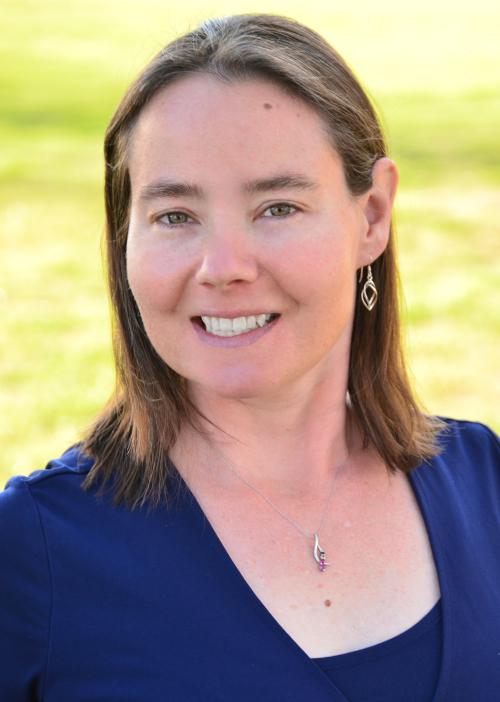
Sanlyn Buxner (University of Arizona)
Coauthors: Vanesa Farooq (Amherst College), Kate Follette (Amherst College), Erin Galyen (University of Arizona), Catherine Sarosi (Amherst College)
For more information about this talk click here
-
Astronomy teacher training programs in Chile
Tuesday Nov. 15, 2022
UTC: 8:25 p.m. - 8:35 p.m.Wednesday Nov. 16, 2022
UTC: 12:25 p.m. - 12:35 p.m.In this talk, we show the main results of a questionary characterizing the professional development programs offered to K12 teachers in Chile in the last five years. Leaders from 16 programs answered on aspects of their planning, implementation, and evaluation, allowing us to outline a profile. We contrast the results with the literature on teachers' professional development programs' effectiveness and discuss the Chilean programs' strengths and aspects to improve. We highlight that most of them accomplish focusing on curricular topics and offering hands-on activities. However, not many programs evaluate their effectiveness, and almost none follow up with the participant teachers in their subsequent professional practice.
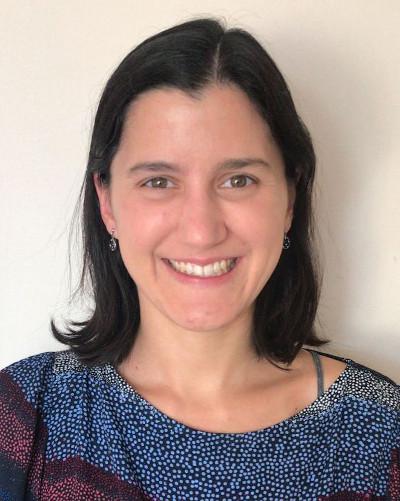
Lara Rodrigues (Pontificia Universidad Católica de Chile)
Coauthors: Alejandro Meneses (Pontificia Universidad Católica de Chile), Maximiliano Montenegro (Universidad de La Serena, Chile), Stephen Pompea (NOIR Lab)
For more information about this talk click here
-
The knowledge of primary teachers about key concepts: the fragile foundation of astronomy education
Tuesday Nov. 15, 2022
UTC: 8:35 p.m. - 8:45 p.m.Wednesday Nov. 16, 2022
UTC: 12:35 p.m. - 12:45 p.m."CoAstro: @n Astronomy Condo is a citizen science project that engage, during one school year, primary school teachers, in astronomy research. One of CoAstro goals is to promote the appropriation of key astronomy concepts. To assess that we apply the “Astronomy Questionnaire” (AQ), at the beginning and end of the CoAstro´s first edition. The pretests results show low levels of teachers´ knowledge (M=20.6%; SD=9.5%). From qualitative analyses, we link those results with gaps on initial training and with the lack of astronomy relevance in the national curriculum. This factor led to teachers´ low investment in astronomy continuous training. However, the posttests results prove that CoAstro strategies can overcome this scenario and shows how everyone can learn about key astronomy concepts."
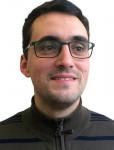
Ilídio André Costa (Santa Bárbara School Cluster / Porto Planetarium - Ciência Viva Center / Instituto de Astrofísica e Ciência do Espaço)
For more information about this talk click here
-
Why Astronomy Education Research is Important and How Its Results Help in Formal Astronomy Education
Tuesday Nov. 15, 2022
UTC: 8:45 p.m. - 8:55 p.m.Wednesday Nov. 16, 2022
UTC: 12:45 p.m. - 12:55 p.m.Astronomy Education Research as part of Science Education has been critical not only in analysing the current state of scientific literacy and practice in schools, but also in strengthening teaching methods & teacher education. In this talk, I will review how AER data in schools can help teachers estimate the media and cultural literacy in astronomy that students in different environments adopt, and in what way AER can guide redesigning learning environments based on critical thinking and problem-solving skills. Along the way we will see how insights from edu. psychology, linguistics, neurosciences, cognitive science and design studies allow schools to understand students better; and its results tell us how to redesign classrooms and learning spaces based on cognitive & social processes.
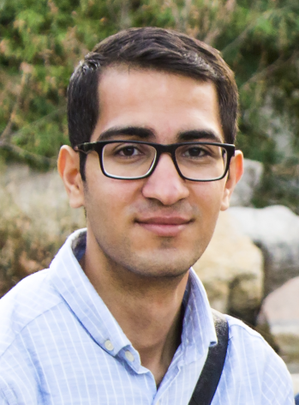
Saeed Jafari (University of Kurdistan, Department of Linguistics)
For more information about this talk click here
-
Discussion Panel: Astronomy education research on the role of astronomy in schools
Tuesday Nov. 15, 2022UTC: 8:55 p.m. - 9:30 p.m.
Wednesday Nov. 16, 2022
UTC: 12:55 p.m. - 1:30 p.m.Chair:

Merryn Cole
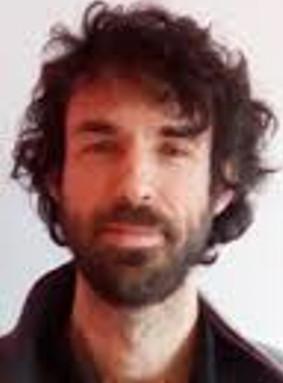
Emmanuel Rollinde
Panel: Sanlyn Buxner
(Planetary Science Institute & University of Arizona), Merryn Cole , Ilídio André Costa
(Santa Bárbara School Cluster / Porto Planetarium - Ciência Viva Center / Instituto de Astrofísica e Ciência do Espaço), Saeed Jafari
(Space Generation Advisory Council / Human and Space Museum), Lara Rodrigues
(Pontificia Universidad Católica de Chile)
Posters
-
A typical case on teaching Hertzsprung–Russell diagram by exploring the nature of astronomy diagrams
Zhang Yiming (Astronomy Department,School of Physics and Electronic Science, Guizhou Normal University)
The H-R diagram, a typical case for teaching improvement on scientific methods in astronomy, is used to revealing the process of the stellar evolution. The diagram was created and improved by induction, while the related explain on stellar evolution by deduction. Therefore, the relationship between such inductive diagram and the deductive explain may calls methodology confusion. It is possible to clarify the confusion by exploring the diagram among the modern astronomy history, analyzing the theory of stellar internal structure developed in the same era and visualizing the generation of the diagram. It is expected to further understand the nature of the diagram by such efforts.
-
Justifications for teaching Cosmology in Basic Education:Analysis of papers and curriculum documents
Camila de Macedo Deodato Barbosa , Cristina Leite (University of São Paulo)
Cosmology as a research area feeds human curiosity to seek answers about the birth of the universe. From this perspective, how can the teaching of Cosmology mobilize scientific practices in the classroom? This work aims to build justifications for the teaching of Cosmology from a literature review and analysis of Brazilian state curricula. The analysis points out that teaching Cosmology in Basic Education can mobilize discussions about the nature of Science, promote the theme of modern physics, establish relationships between technology and scientific development and build notions of location on a cosmic scale.
-
Promoting Basic Sciences for Astronomy education research on the role of astronomy in schools
Dana Ficut-Vicas (Romanian Ministry of Education), Elisabeta Ana Naghi (Romanian Ministry of Education)
With the IYBSSD2022, the Romanian National Committee for Astronomy(CNRA) has launched a campaign to promote basic sciences in over 100 schools from Romania, from rural and urban areas. Within this campaign we investigate the role that basic sciences, (astronomy and space science plays in school education and the impact of the activities within the campaign in motivating students towards studying STEAM and choosing STEAM careers. We would like to present results of the analysis of the initial survey that all participants This analysis shows the contribution Astronomy and Spatial Sciences currently have to STEAM Education in schools in Romania and is an essential starting point in building future programs and campaigns that can focus on the urgent needs of the STEAM Education in our country.
-
SINA; Methods and projects for students and schools to involve them in astronomy education
Mahdi Rokni (Manager of SINA and Associate member of IAU Commission C1; Astronomy Education and Development), Hossein Khezri (Associate member of IAU Commission C1; Astronomy Education and Development), Maryam Papari (Associate member of IAU Commission C1; Astronomy Education and Development), Parham Eisvandi (Associate member of IAU Commission C1; Astronomy Education and Development), Reyhaneh Johari (Member of SINA), Narjes Moylaei, (Member of SINA), Siavash Eisvandi Dehnoei (Member of SINA), Anahita Zadsar (Member of SINA), Maryam Hadizadeh (Associate member of IAU Commission C1; Astronomy Education and Development")
Students' International Network for Astronomy (SINA) was a social group of students in south of Iran since 2014, that was organizing many astronomical activities and projects in the area. SINA has been organizing many international events of astronomy in relation with cultures, history and societies, in cooperation with Iranian Teachers Astronomy Union (ITAU), Astronomy Day in School (ADiS) and Network for Astronomy School Education (NASE) including the main Persian astronomical ceremonies for ADiS connecting more than thousand students in more than 15 countries around the world. It is important to be mentioned that we have been establishing some methods and ideas for underage children and elementary students.
-
Worldviews: How Undergraduate Introductory Astronomy Students Relate Science to Five Social Domains
Hannah Lewis (Department of Astronomy, Wesleyan University), Sanlyn Buxner (Planetary Science Institute & University of Arizona)
Understanding how students relate course material to beliefs about social frameworks outside the classroom can help instructors make courses more inclusive and engaging. We report on a study of undergraduate students enrolled in introductory astronomy courses, who completed a five question survey about the relationship of science to society, quality of life, daily life, government, and religion. We find that a majority of students believe the relationship of science to society is more significant than insignificant; the influence of science on quality of life is more favorable than unfavorable; everyday life is more connected than disconnected to science; the government is more supportive than unsupportive of science; and religion and science are more not in conflict than in conflict.




